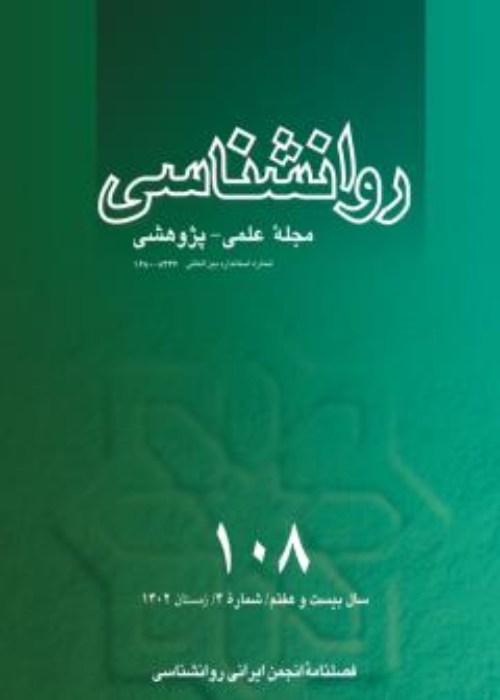Development of an International Scale of Religiosity: A Cross Cultural Approach
Author(s):
Abstract:
The objective of this study was to prepare religiosity scale based on commonalities of Abrahamic religions (Judaism, Christianity, and Islam) in order to provide a instrument for intercultural studies. Six studies were conducted: 1) extraction of 47 commonalities of the religions; 2) prepration of an item pool with 225 items according to Khodayari et al.'s (2009) three-dimensional conceptual modeling; 3) preliminary empirical study among Muslim students in university of Tehran and developing a 60 item scale; 4) Frist empirical study among Jewish, Christian, and Muslim students, conducting item analysis and formulation of the second preliminary version of the religiosity scale with 88 items; 5) Second preliminary empirical study and extraction of exploratory factor analysis with 57 items, in a population consisted of Muslims, Jews, and Christians students in Iran; 6) Final study in Iran and 11 other countries from Asia, European, African and American continents and extracting exploratory and confirmatory factors with 30 items. Studying reliability indexes of items, subscales, and the overall three-dimensional scale showed that all subscales had acceptable alpha coef 1395 ficients ranging from 0.81 (religious emotions), 0.82 (religious behaviors) to (religious belief) 0.77. Investigation of correlation coefficients of the item scores with total score of the related subscales showed that these indexes varied between 0.29 and 0.70. Therefore, it could be concluded that the final 30-item scale had a similar factor structure and psychometric properties in both the Iranian and international samples. In order to create the final version, we added 5 items designed to tap socially-desirable responding. The aim of adding these items is for identifying social desirability biase. In this subscale the total number greater than 13 shows the responses are unreliable. Thus, it can be used as a measure in studies on crosscultural differences in religiosity and additional validation can be verified.
Keywords:
Language:
Persian
Published:
Journal of Psychology, Volume:20 Issue: 1, 2016
Page:
3
magiran.com/p1520002
دانلود و مطالعه متن این مقاله با یکی از روشهای زیر امکان پذیر است:
اشتراک شخصی
با عضویت و پرداخت آنلاین حق اشتراک یکساله به مبلغ 1,390,000ريال میتوانید 70 عنوان مطلب دانلود کنید!
اشتراک سازمانی
به کتابخانه دانشگاه یا محل کار خود پیشنهاد کنید تا اشتراک سازمانی این پایگاه را برای دسترسی نامحدود همه کاربران به متن مطالب تهیه نمایند!
توجه!
- حق عضویت دریافتی صرف حمایت از نشریات عضو و نگهداری، تکمیل و توسعه مگیران میشود.
- پرداخت حق اشتراک و دانلود مقالات اجازه بازنشر آن در سایر رسانههای چاپی و دیجیتال را به کاربر نمیدهد.
In order to view content subscription is required
Personal subscription
Subscribe magiran.com for 70 € euros via PayPal and download 70 articles during a year.
Organization subscription
Please contact us to subscribe your university or library for unlimited access!






